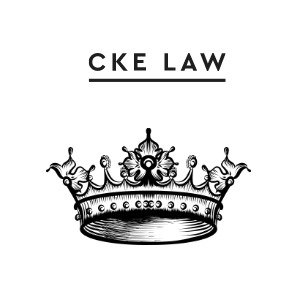Best Patent Lawyers in Manchester
Share your needs with us, get contacted by law firms.
Free. Takes 2 min.
List of the best lawyers in Manchester, United Kingdom
About Patent Law in Manchester, United Kingdom
Patent Law in Manchester, the United Kingdom, operates under the broader framework of UK and European Patent Laws. A patent is a legal document that gives the inventor exclusive rights to their invention. It serves to prevent others from making, using, selling, or distributing the patented invention without the patent holder's permission. The Intellectual Property Office (IPO) is the responsible body for granting patents in the United Kingdom.
Why You May Need a Lawyer
Patenting an invention can be complex and time-consuming. There are several reasons you may require a patent lawyer. You may need assistance in preparing and filing the patent application, ensuring that it includes sufficiently comprehensive and technical claims to provide the maximum protection. If your patent application is challenged or rejected, a lawyer can represent you before the IPO or in court. You also might need a lawyer if someone infringes on your patent, or if you wish to license or sell it.
Local Laws Overview
Patent law in Manchester relies on the UK's general patent laws i.e., the Patents Act 1977. An invention must be novel, involve an inventive step, and be capable of industrial application to qualify for a patent. The duration of a patent is typically 20 years, but it requires annual renewal. Notably, a British patent only protects the invention within the UK. If protection overseas is required, you need to file separate international applications.
Frequently Asked Questions
How long does the patent application process take?
The patent application process typically takes a few years. The duration depends on the complexity of the invention and the workload of the patent office.
Are patent laws the same across the United Kingdom?
Yes, patent laws are consistent throughout the United Kingdom, including Manchester. They are regulated on a national level by the IPO.
Can I sell or license my patent?
Yes, as a patent holder, you are entitled to exploit your patent by selling or licensing it to another party.
What is a patent infringement?
Patent infringement occurs when a third party uses, sells, or manufactures your patented invention without your permission.
What can't be patented?
An invention that is a scientific theory, mathematical method, purely aesthetic creation, or any work of literature, art or music cannot be patented. Furthermore, inventions against public policy or morality are not patentable.
Additional Resources
The Intellectual Property Office is the main governmental body concerned with patents in the UK. In addition, there are professional organizations like The Chartered Institute of Patent Attorneys (CIPA) and The Institute of Trade Mark Attorneys (ITMA) that offer resources and guidance.
Next Steps
If you need legal assistance in patent law, it's advisable to reach out to a solicitor specialized in patent law. They can provide advice on patentability, help with the registration process, and represent you in any potential disputes.
Lawzana helps you find the best lawyers and law firms in Manchester through a curated and pre-screened list of qualified legal professionals. Our platform offers rankings and detailed profiles of attorneys and law firms, allowing you to compare based on practice areas, including Patent, experience, and client feedback.
Each profile includes a description of the firm's areas of practice, client reviews, team members and partners, year of establishment, spoken languages, office locations, contact information, social media presence, and any published articles or resources. Most firms on our platform speak English and are experienced in both local and international legal matters.
Get a quote from top-rated law firms in Manchester, United Kingdom — quickly, securely, and without unnecessary hassle.
Disclaimer:
The information provided on this page is for general informational purposes only and does not constitute legal advice. While we strive to ensure the accuracy and relevance of the content, legal information may change over time, and interpretations of the law can vary. You should always consult with a qualified legal professional for advice specific to your situation.
We disclaim all liability for actions taken or not taken based on the content of this page. If you believe any information is incorrect or outdated, please contact us, and we will review and update it where appropriate.










